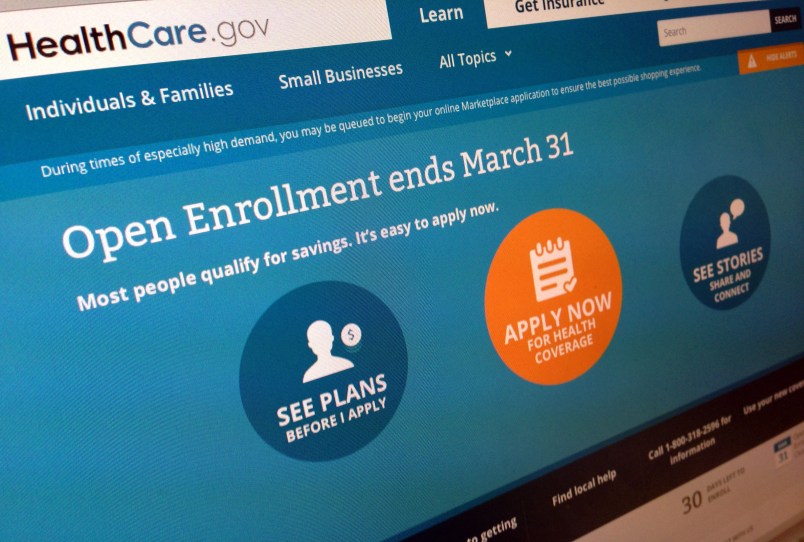Judging by the first round of legislation and reported regulations being mulled by Republicans, GOP lawmakers intend to focus on meeting requests by insurers to keep the individual market stable as they move forward with repealing the Affordable Care Act.
Last week, the House Energy and Commerce Committee’s subcommittee on health held hearings on four pieces of legislation, three of which involving tweaks to Obamacare insurers have long recommended. (The fourth bill was a GOP promise to protect the coverage of those with pre-existing conditions, though the mechanism to do so was unclear). Meanwhile, the Health and Human Services Department under President Trump is reportedly weighing regulatory changes to Obamacare that would achieve similar goals.
One House bill would extend the ratio for determining how much more insurers can charge older consumers compared to younger consumers. The current ratio under the ACA is 3-to-1; the House bill would change the ratio, known as the age band, to 5-to-1, making premiums cheaper for younger people and more expensive for the elderly, who are more costly for insurers to cover.
Another bill would require consumers seeking to use special enrollment periods to provide documentation that they qualify, and the third piece of legislation would shorten the grace period that consumers have if the don’t pay their premiums before coverage is dropped. The bills are in line with proposals previously pushed by insurers under the Obama administration.
According to reports by Huffington Post and Politico, the HHS is also perusing an extension of the age band, from three-to-one, to 3.49-to-one (the legality of which is questionable). The administration is considering changes to special enrollment rules and grace period standards, as well as proposals to shorten open enrollment and to give insurers more flexibility in charging out-of-pocket costs in their silver plans, Politico reported based on administration documents,
Softening insurance regulation is not exactly a risky move for GOP lawmakers to take in their nascent steps towards replacing Obamacare. Decreasing the federal government’s role in regulations is a common refrain among GOP lawmakers who have otherwise been vague on what their Obamacare replacement will look like.
However, the recent moves are also a tacit admission that some Republicans see it in their interest to attempt to keep the ACA’s individual marketplaces on life support in the short term while they build consensus around an alternative. Marilyn Tavenner, the CEO of insurer trade group America’s Health Insurance Plans (AHIP), urged them to do as such in Senate testimony last week that cheered some of proposals being offered by Republicans. Other key lawmakers, like Senate HELP Committee Chair Lamar Alexander (R-TN), have espoused rhetoric advocating for a “repair” of the current health care system, while the underlying law is dismantled.







Trump says ACA is a disaster…I get it now.
Across State Lines: The states with the least regulation and creates maximum profit
for insurance Companies will be the Store fronts for this Scam !
Trump University has a program for you too ??
Sad for the folks soon to lose insurance but also kind of ironic justice if they repeal ACA and a lot of insurance companies go out of business due to folks being unable to afford insurance.
My expectation has always been that Trump would deliberately destabilize the exchanges in order to create a favorable environment for Republicans to pass their healthcare plan. His first day executive order allowing for the possibility of eliminating the mandate fit that pattern.
If in fact the Republicans in Congress are making a good faith effort to stabilize the exchanges, I am all for it. It’s a first step in getting Republicans to fix Obamacare, not replace it.
Sadly, I don’t think this is going anywhere. The Republican Party has made Obamacare repeal an article of faith, and I do not see that changing. This also means Democrats have to be very careful in supporting it. We cannot ever, in any way, be put in a position of seeming to be complicit in the destruction of Obamacare.
The other big takeaway is that we have now established that Obamacare is not in a “death spiral”, and a few relatively simple fixes could stabilize the exchanges. This will become valuable later when Republicans argue that Obamacare was doomed to failure.
I won’t believe the GOP will stabilize the exchanges (though that would be laudable under the circumstances). Reason? It’ll cost money. No way this Congress would appropriate more “welfare” payments. Isn’t that what Rubio called them when he succeeded in the initial destabilization?